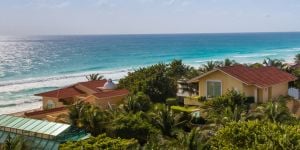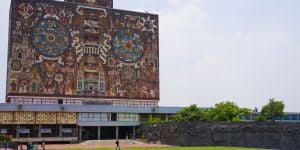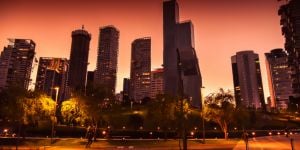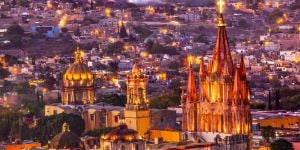A delightful combination of tropical beaches, turquoise lagoons, tree-covered hills and authentic French food, New Caledonia is a fascinating destination, organic in its versatility.
An overseas territory of France in the western Pacific Ocean, the country occupies the total area of 18,576 square kilometres and is divided into five regions. Grand Terre is the main territory, and one of the largest islands in the Pacific. East of Grand Terre you will find the large and densely inhabited Loyalty Islands. Île des Pins (the Island of Pines), true to its name, is home to beautiful tall trees facing the light blue sea. Belep Archipelago houses a small community, and the more remote Chesterfield Islands are completely uninhabited.
The ethnic composition of New Caledonia is varied including the indigenous nation of Kanaks, the descendants of settlers from North Africa, Europe, and Asia, French and Polynesians.
Nouméa is the country's capital and the only big city. New Caledonia speaks French, as well as 39 other local languages.
New Caledonia is the fourth largest economy in Oceania and the world's fifth largest producer of nickel on which its economy mostly relies. The region is popular with tourists and offers its visitors unspoilt beaches for swimming and snorkelling and grassy hills for hiking and camping.
EU citizens can visit New Caledonia visa-free and stay for an unlimited time. Citizens of most other countries don't need a visa either, but their stay is limited to a period of 15 to 90 days, depending on the country of origin.
There are not many expats living in New Caledonia, but the country's French vibe makes the adaptation process easier. Note that even EU citizens need to apply for a work permit if they are interested in seeking employment in New Caledonia.
We do our best to provide accurate and up to date information. However, if you have noticed any inaccuracies in this article, please let us know in the comments section below.











